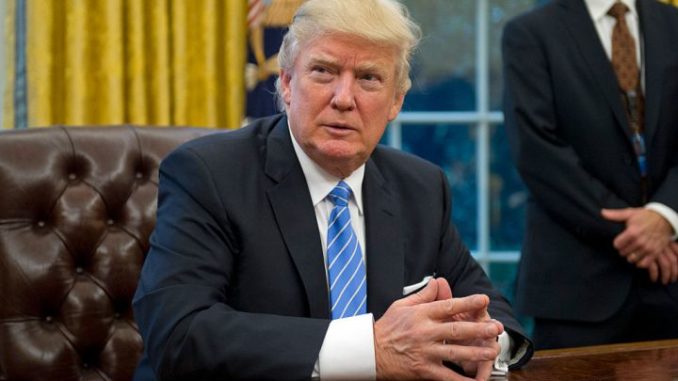
In the circles of family and friends in which I move, I don’t believe there is anyone who voted for Donald Trump. This is probably equally true of most middle-class professionals in the United States. Furthermore, a very large percentage of such people are obsessed with Trump and cannot wait until he ceases to be their president.
I am regularly asked to project for them how long he can survive in office. My standard answer is two days to eight years. This never satisfies those who pose the question. They cannot believe that this is a serious assessment. Those who pose the question see Trump as an “evil” person and find it difficult to believe that this view is not widely and increasingly shared by a majority of the population, even including those who voted for Trump.
For my questioners, it seems to be a question of ideology and/or morality. If others do not see this (at least yet), it must be because they are ill-informed or insufficiently-informed of what Trump believes and how he acts. They may draw from this two possible conclusions. The optimistic conclusion is that light will eventually shine on the benighted and Trump will be ousted. The pessimistic one is that nothing much can change the attitudes of most people and therefore the situation is hopeless.
I believe that this is a very wrong way to frame the issue. Trump is not an ideologue. To be sure he does have an agenda that he will pursue to the best of his ability. But the agenda is absolutely secondary to his top priority which is to remain the president of the United States, a position that he equates with being the most powerful individual in the world. He will do anything to remain in this post, including sacrificing any part of his agenda, temporarily or permanently.
He is extremely proud that he is the U.S. president. As he said to one reporter, he must be doing something right since he is the president and the reporter is not. He is validated by being in the post. He seeks praise from others and lavishes praise upon himself. He says he is the best president the United States has ever had and will probably ever have.
So, why do I say that Trump will remain in office two days to eight years? This is because he is not the only one who shares the priority of remaining in office. This priority is shared by almost all members of the U.S. Congress. There are at least two ways of removing a president, impeachment or invoking the Twenty-fifth Amendment about incapacity to fulfill the tasks of president.
What would move those in Congress, and especially in the Republican Party, to seek to remove Trump from office? They would have to believe that for them to remain in office depends in large part on whether to leave Trump in office or remove him from office.
The choice is clear. What is not clear to them at this point is which option is better for them. So they waffle and will continue to waffle for a while yet. At the moment, they clearly see no advantage in supporting those persons (almost all Democrats) who are urging a process of removing Trump.
Assessing the relative advantage of the two options is not at all an easy task. It is in large part a reading of shifting public opinion, a notoriously hard thing to calculate. So they read the polls (but which ones?). They meet with voters in their district (but which ones?). They talk to financial contributors (but which ones?).
As with most relatively blocked situations, the blockage could open with one small entirely unexpected event that leads others suddenly to scramble and a momentary rush to get on board a transformed tide. That could happen two days from now or never happen while Trump completes two terms in office. It is unpredictable. It is not however about ideology or agenda. It is about remaining in office for the sake of being in office.
Immanuel Wallerstein, Senior Research Scholar at Yale University, is the author of The Decline of American Power: The U.S. in a Chaotic World (New Press).
